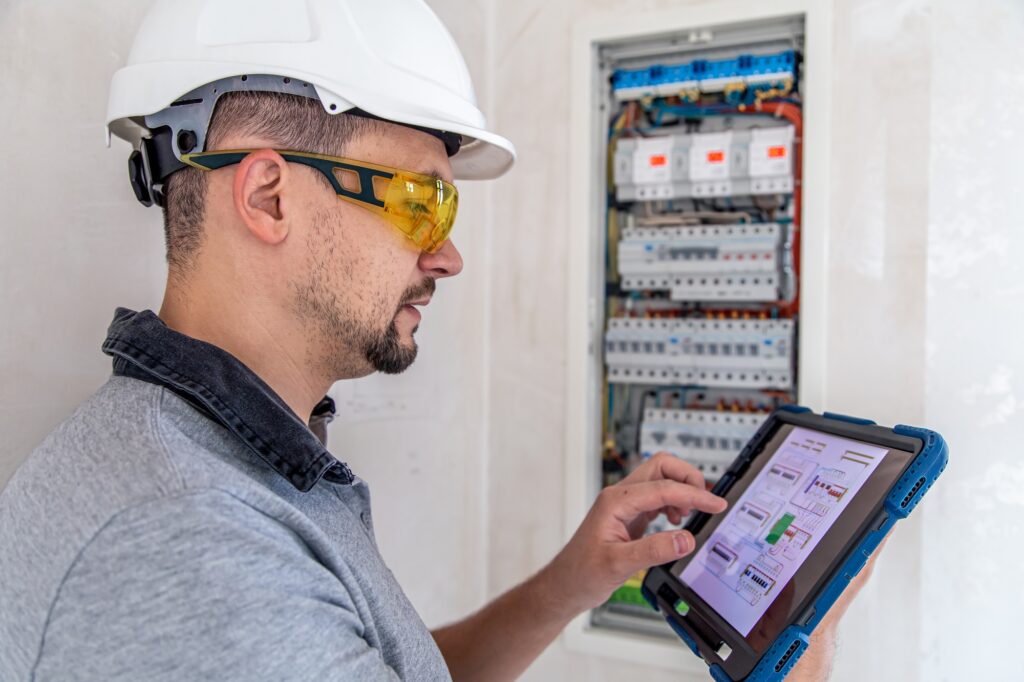Understanding the electrical system in your home is an important aspect of home ownership. It can help you identify potential issues and make informed decisions about upgrades or repairs. Here’s a beginner’s guide to understanding your home’s electrical system:
- The main service panel, also known as the breaker box or electrical panel, is the central hub for all of the electrical circuits in your home. It contains the main breaker or main disconnect, which controls the power to the entire house.
- The circuits in your home are divided into two main categories: 120-volt circuits and 240-volt circuits. 120-volt circuits are used for lights, outlets, and smaller appliances, while 240-volt circuits are used for larger appliances such as air conditioners, electric ranges and dryers.
- Each circuit in your home is protected by a circuit breaker. When a circuit is overloaded, the breaker trips, cutting off power to that circuit. This is a safety feature designed to prevent fires and other hazards.
- GFCI (Ground-Fault Circuit Interrupter) outlets are designed to protect against electrical shock. They are typically found in areas where water is present, such as bathrooms, kitchens and outdoor areas.
- The electrical wiring in your home is typically made of copper or aluminum and is either underground or run through the walls. The wiring carries the electrical current from the main service panel to each of the circuits in your home.
- The grounding system in your home is an important safety feature. It helps to protect you from electrical shock by providing a safe path for stray electrical current to flow to the ground.
- Your home’s electrical system may also include other components such as receptacles, switches, and lighting fixtures. These components can be replaced or upgraded as needed to improve the functionality of your electrical system.
- If you’re planning on doing any electrical work in your home, it’s important to follow proper safety precautions and use the appropriate tools. Hiring a licensed electrician is always recommended for any major electrical work or repairs.
- Lastly, it is important to keep your electrical system up-to-date. This includes things like replacing old wiring, upgrading your electrical panel and making sure all the electrical devices are working properly.
By understanding the basics of your home’s electrical system, you can make more informed decisions about maintaining and upgrading your home’s electrical system. Remember, safety should always be your top priority when it comes to electricity, so if you ever feel unsure about any aspect of your home’s electrical system, call a licensed electrician for an inspection.
















